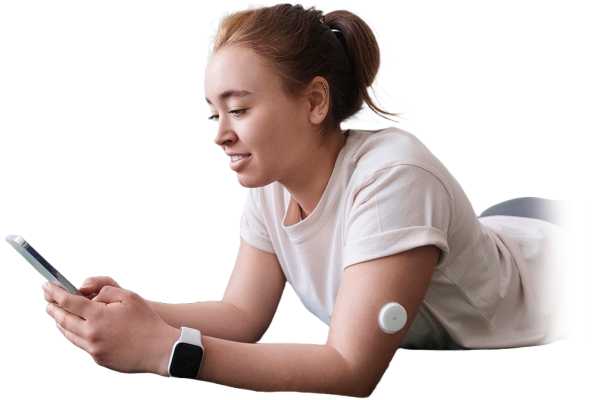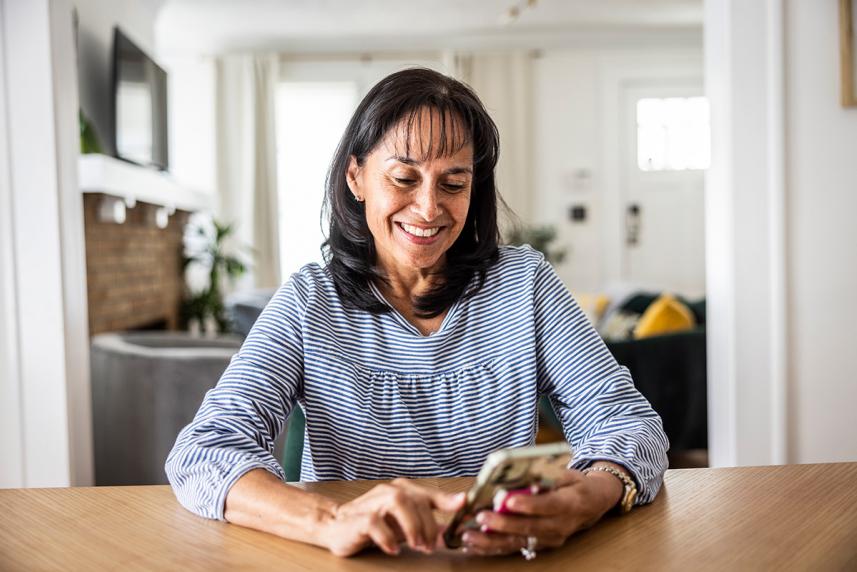
You have access to programs for managing diabetes, cancer, COPD, and more through the Blue KC Care Management app. Get started today with access code kcwsqcare.
These expert tips can help make the transition home a little smoother.

When you’re in the hospital, your main focus is getting through your treatment. But heading home doesn’t mean you’re fully recovered. This usually takes time. Skipping certain steps could lead to another hospital stay.
Hospital readmission rates vary by procedure. In general, about one in eight patients return for another hospital stay after major surgery within 30 days.
Being in the hospital can be stressful. The good news is that there are steps you can take to help you stay out of the hospital after you’re released.
Being in the hospital can be overwhelming. This can make it harder to process information. You might not understand what your illness means. Or you might not be sure when to follow up with your doctor.
Invite a trusted friend or family member to come to the hospital. They can take notes when your provider goes over your follow-up plan and care instructions.
It’s also a good idea to ask for patient education materials. They can help explain your:
Having these materials at home can help you with your recovery. This will lower your chances of accidentally harming yourself and returning to the hospital.
Finally, take advantage of your Blue KC Care Management app. This digital health management app is included with your health plan at no additional cost.* The Blue KC Care Management app can connect you with your Blue KC Care Team. They can connect you to support and resources, and coordinate your care. You can also search the app's resource library for expert-reviewed articles and videos.

You have access to programs for managing diabetes, cancer, COPD, and more through the Blue KC Care Management app. Get started today with access code kcwsqcare.
Make a follow-up appointment with your primary care provider (PCP). This visit usually happens about one week after you leave the hospital. Use this time to update your PCP on your condition, which helps create “continuity of care.” This means having an informed health team in place. That way you don’t have to do it alone after your procedure.
Your PCP will look over paperwork from your hospital stay, go over your progress, and answer any questions. This visit is a great way to catch any issues early, before they become bigger problems.
There are many reasons you may return to the hospital. One of them is infection. You can help stop infections by keeping germs away. Wash your hands often. Ask others to do the same.
Experts advise washing for at least 20 seconds. Scrub the backs of your hands and wash between your fingers and under your fingernails. Remember to wash your hands throughout the day. This includes:
Stay away from anyone who feels sick. This will also help keep you healthy.
Ask your doctor about any signs that something is wrong. These usually include symptoms like:
But these aren’t the only symptoms you need to watch out for. If you feel worse than expected, call your doctor. Also call them if something isn’t healing as expected.
A hospital stay can mean big changes to your medication routine. These might include:
Changes to your medications can feel confusing. That’s where a lot of mistakes happen, which can lead to readmission.
Follow up with your PCP to understand exactly what you’re taking. They can help make sure you’re not doubling up by accident. Your PCP can also make sure you’re not mixing medicines that shouldn’t be mixed.
No one wants you to run a marathon after a hospital stay. But small movements can help your body heal faster.
Your doctor should tell you how much movement is safe. But also listen to your body. Rest if you need to. Does it feel good to stretch? Then do that. But always make sure your provider says moving is okay first.
You may not feel hungry when you’re in the hospital. Even so, your body needs the right foods to heal. Ask your provider about what you can eat. They might suggest eating small meals more often during the day. They might want you to focus on fiber or drink more water. Or they may put you on a special diet. This all depends on your procedure.
Cooking might be hard when you first get home, so try to prep ahead of time. Having simple meals ready to go makes it easier to eat and helps save your energy.
You’ll likely feel relieved to go home from the hospital. But your recovery isn’t over yet. Put your health first so you recover faster and avoid readmission to the hospital.
Article sources:
Hospital readmission statistics: JAMA Network Open
Reducing readmissions: The Journal of Family Practice
Handwashing: Centers for Disease Control and Prevention